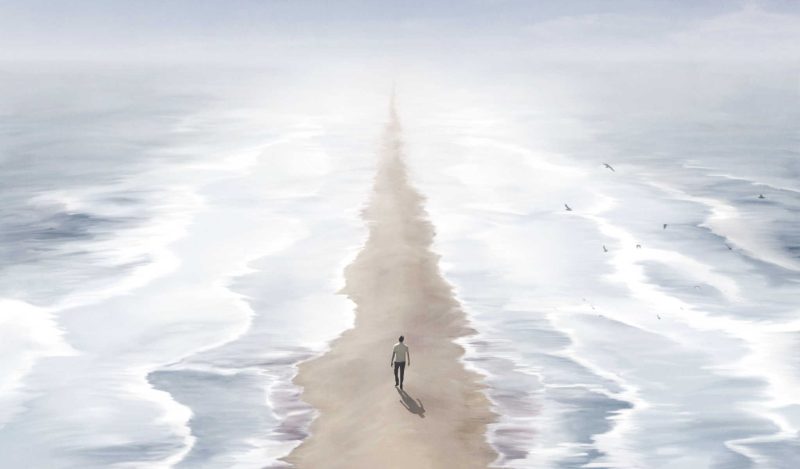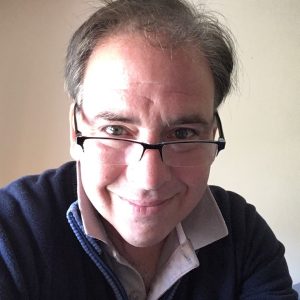There can be few experiences more traumatizing than suddenly becoming an alien in your own land. The primal fear of the hate-fueled mob coming to get you, burning torches in hand, runs through our human DNA.
That is the pandemic experience of tens of millions of Americans, condensed in two sentences.
One moment, you’re waving to a longtime neighbor. The next, the neighbor is calling the police because you are violating the lockdown.
One moment, you have a decent little community business. The next, the authorities have shuttered your doors and you watch helplessly as the “big box” near the freeway gobbles up your customers and, in the end, your livelihood.
One moment, your kids are in school with all the other kids. The next, your children are shunted aside into a faceless, numbing, system that crushes your soul as you watch them suffer while the families who can pay for private school are doing just fine.
One moment, you can go anywhere you want. The next, you are mandated to stay in a few places.
Even to this day, doctors you trusted no longer see you the same, you are ostracized, you are demeaned by your government and your media, and you are kept from telling your story.
You remain surrounded by a society that you once called your own but are severed from it, viewing it through warped glass erected to keep you out.
All this still, despite the trodden-upon having been proven to be more correct more often about more aspects of the pandemic response. And it remains nearly impossible to get a straight answer – let alone an acknowledgement of responsibility or an apology – for the massive societal degradation from those who caused the damage.
That includes family members and neighbors and friends, who – like the experts and bureaucrats – all wanly admit that it wasn’t perfect, then quickly and smugly add that it was done for the benefit of everyone and how can caring about others – which you clearly were not willing to do – ever be truly bad?
The pandemic – for millions – almost felt as if an instantaneous form of racism – or vacism, if you will – had swept through the nation, with even an apartheid system established overnight to dominate the non-believers, the skeptical, the wondering, the worried, the people – from noted scientists and doctors to just regular folks – who dared to be different.
While the discrimination was not race-based – as it has awfully been too often in the past – the Jim Crow parallels – save for the fact that one system metastasized over decades while the other appeared in the blink of an eye – of the pandemic are unmistakable.
In other words, whites only became vaccinated only in a nanosecond. Different levels of access, different levels of service, different levels of power, different economic outcomes – including such instant actions to shut off access to the bank accounts of protestors (exactly would have been done in the 1960s if it were technically possible) – were all imposed with a speed and ferocity once unthinkable in a free nation.
Another similarity to Jim Crow is how the pandemic damaged not just the intended targets but society as a whole. Actual (not the faux brand bandied about today for fundraising purposes) systemic racism inherently weakens a nation by closing off minds and access to opportunities, just as the pandemic did. From “The Unforgivable Request for Shamnesty – ) –
Massive educational degradation. Economic devastation, by both the lockdowns and now the continuing fiscal nightmare plaguing the nation caused by continuing federal overreaction. The critical damage to the development of children’s social skills through hyper-masking and fear-mongering. The obliteration of the public’s trust in institutions due to their incompetence and deceitfulness during the pandemic. The massive erosion of civil liberties. The direct hardships caused by vaccination mandates, etc. under the false claim of helping one’s neighbor. The explosion of the growth of Wall Street built on the destruction of Main Street. The clear separation of society into two camps – those who could easily prosper during the pandemic and those whose lives were completely upended. The demonization of anyone daring to ask even basic questions about the efficacy of the response, be it the vaccines themselves, the closure of public schools, the origin of the virus, or the absurdity of the useless public theater that made up much of the program. The fissures created throughout society and the harm caused by guillotined relationships amongst family and friends. The slanders and career chaos endured by prominent actual experts (see the Great Barrington Declaration) and just plain reasonable people like Jennifer Sey for daring to offer different approaches, approaches – such as focusing on the most vulnerable – that had been tested and succeeded before.
There is an ethical thought experiment that reflects the crucial threat involved in this type of instant societal alienation. Assume that at the Camp David peace talks in the late 1970s, President Jimmy Carter asked Egyptian President Anwar Sadat and Israeli Prime Minister Menachem Begin each separately a simple question: If you had a button that would erase the other nation, would you press it? Would you press the button?
In this scenario, they both said no, Carter tells them they had both said no, meaning they had something in common. The talks then go on from there – that basic, almost primal acceptance of the other – and peace between Egypt and Israel happens.
Now imagine a moment during the height of the pandemic – the height of the hysteria, the height of the government and media calls for shunning and shaming and the President warning “we are losing patience…” – and that same question is posed to the powers that be, to neighbors, to co-workers, to any die-hard pandemicist – what would their answer be?
The fact that we cannot be sure, the fact that we are terrified that we know it could have been yes, will haunt the nation for generations.
The quote that begins this article is from Michela Wrong’s excellent “Do Not Disturb: The Story of a Political Murder and an African Regime Gone Bad.”
It is about how the once-vaunted Paul Kagame – the current President of Rwanda and the leader of the rebel forces that played a role in ending the inter-tribal genocide in 1994 – has become a killer and a dictator in his own right.
But the quote refers to the precarious pre-return existence of a Rwandan ethnic minority in neighboring Uganda and how the nation they had called home for decades and generations suddenly and ferociously turned on them because then-President Milton Obote decided/suspected in 1982 they specifically were helping a rebel group trying to overthrow his government.
The armed forces smashed through the Banyarwanda (the minority tribe), killing, raping, and burning as the longtime friends and neighbors of the Banyarwanda figured out how best to take advantage of the situation.
“It was horrible,” said one victim, Ernest Karegaya. “There were meetings where people would even make bookings. ‘Me, I’ll take Ernest’s place, you take so-and-so’s place.’ So you see your friends, your neighbor, coming to burn you out. Among ourselves, there had been no problems up until then.”
There are clearly many degrees of separation between what physically happened in Uganda in 1982 and what happened here during the past few years.
But there is no separation between the impulse to power to the forcible coercion, to the deeming unclean, to the domination, to the oppression, to the forcing out or undergrounding the other – the instant alien – between the two.
There can be few experiences more traumatizing than suddenly becoming an alien in your own land. The primal fear of the hate-fueled mob coming to get you, burning torches in hand, runs through our human DNA.
And the button is still there.
Join the conversation:


Published under a Creative Commons Attribution 4.0 International License
For reprints, please set the canonical link back to the original Brownstone Institute Article and Author.









